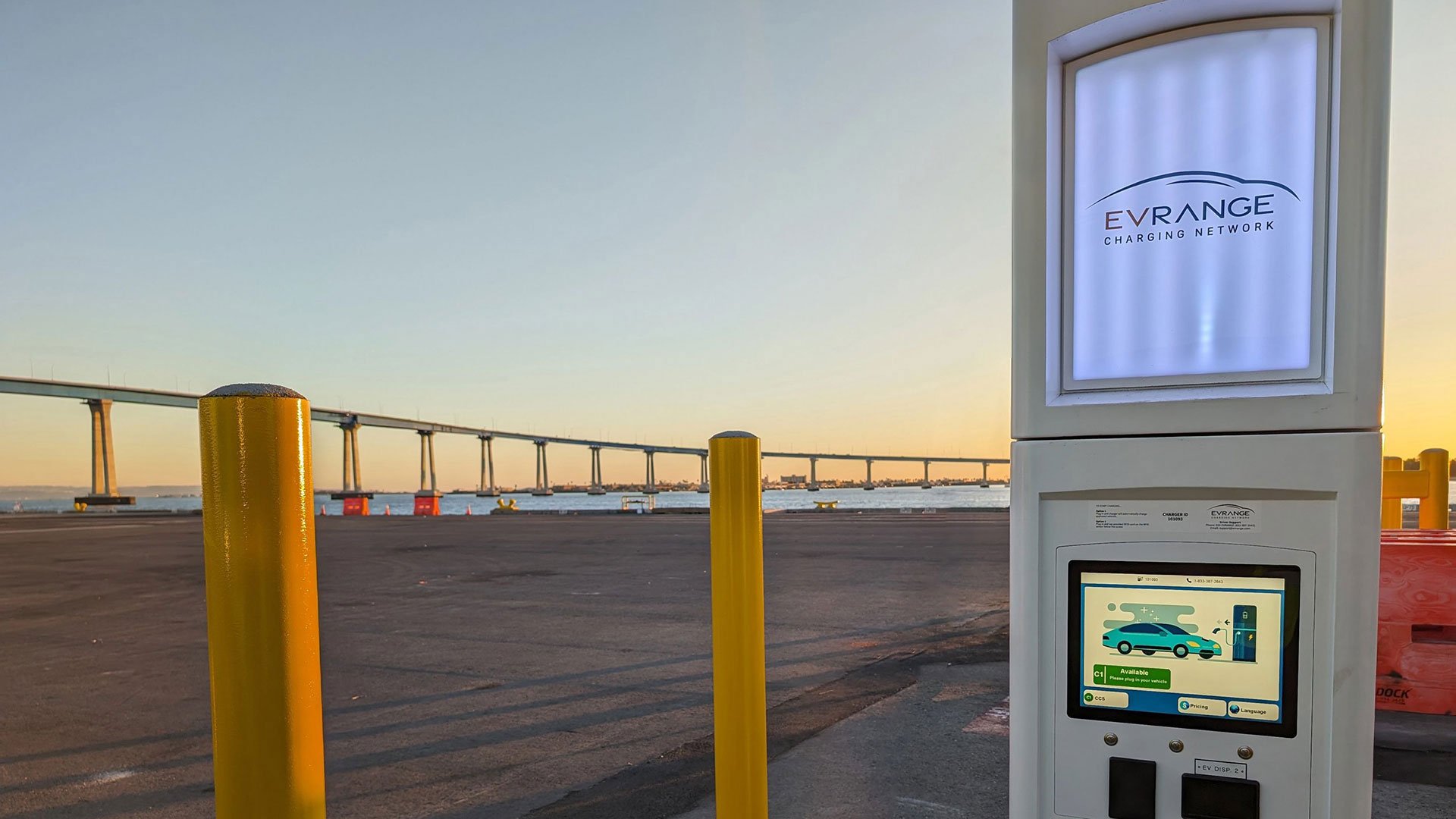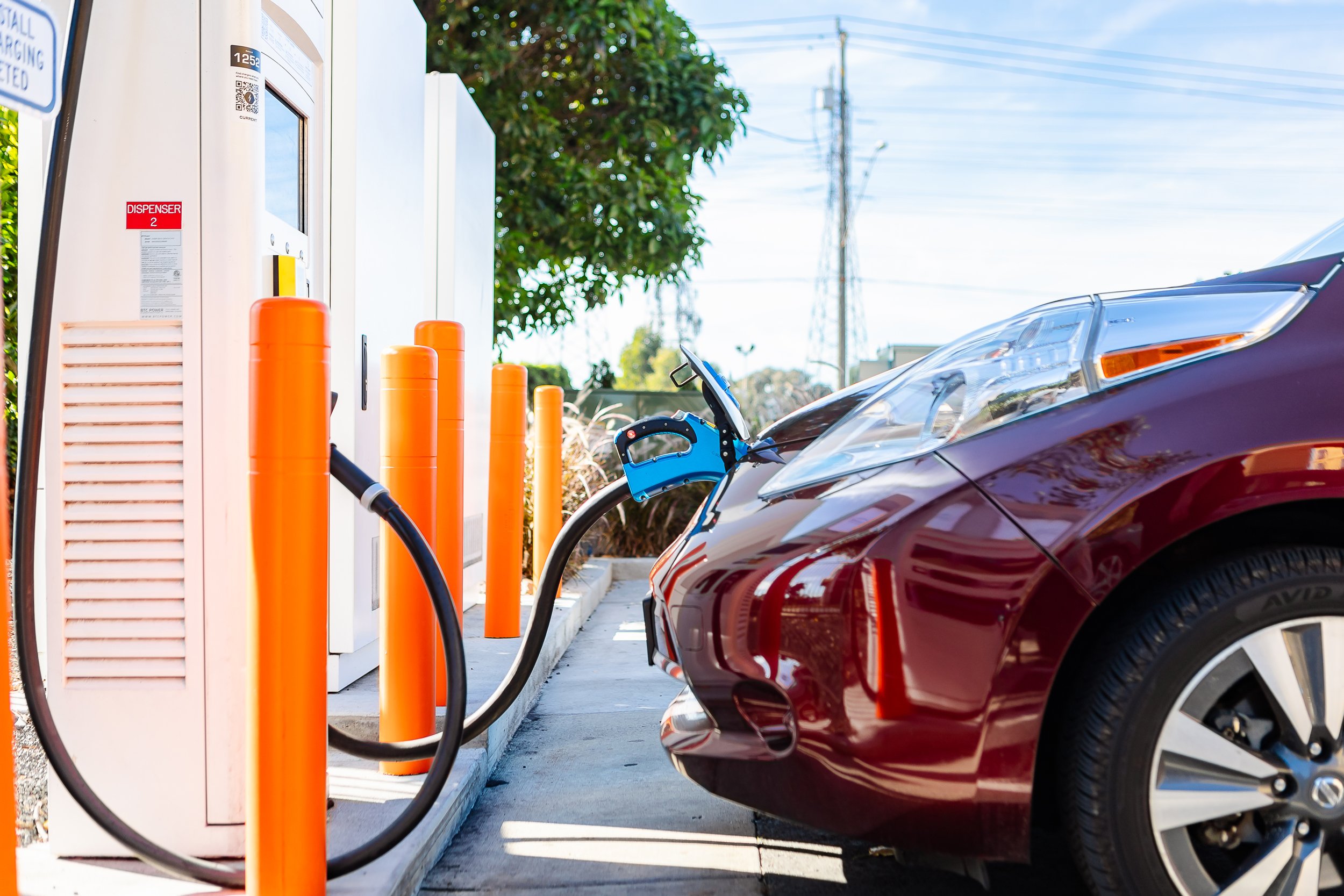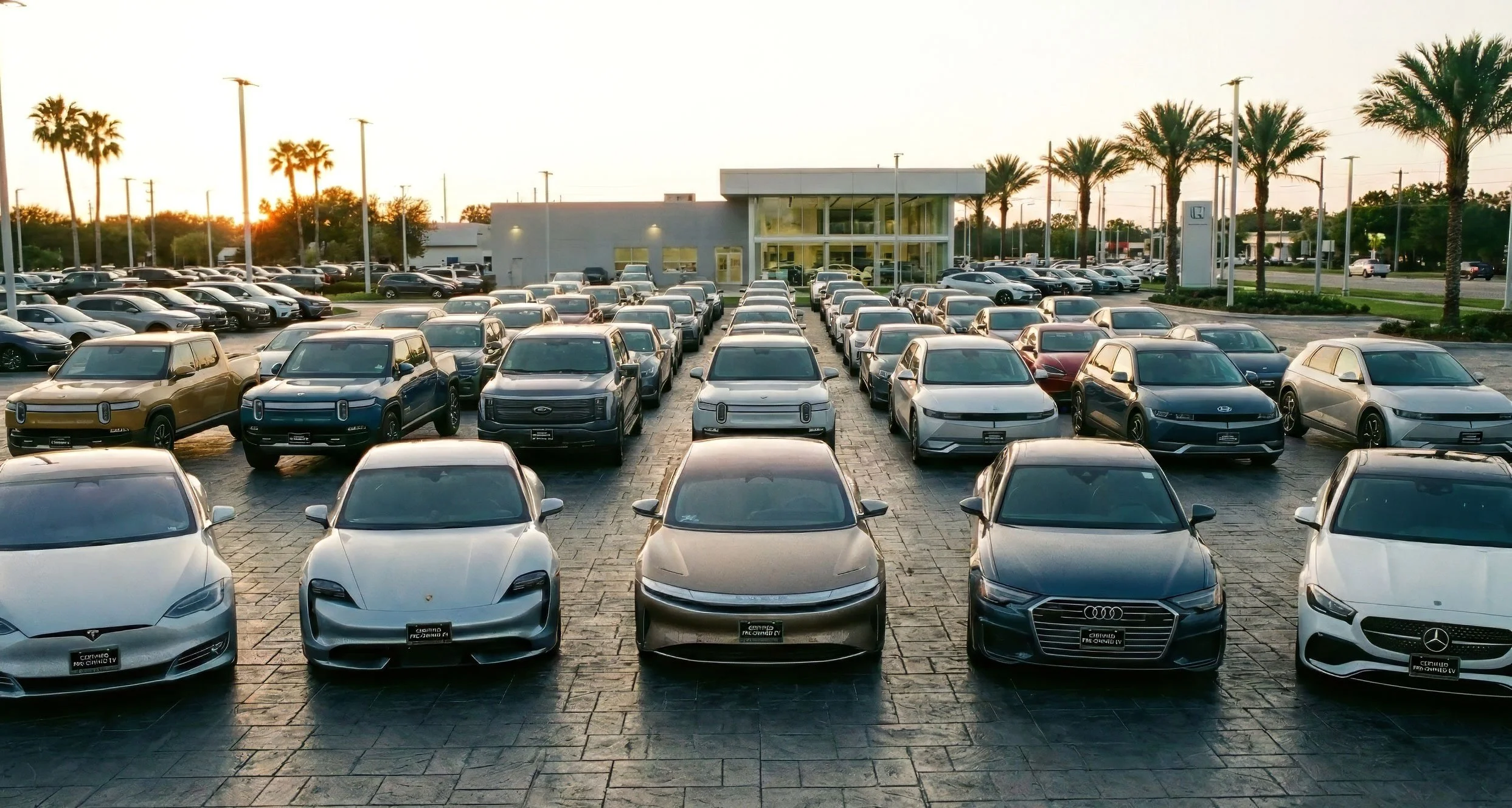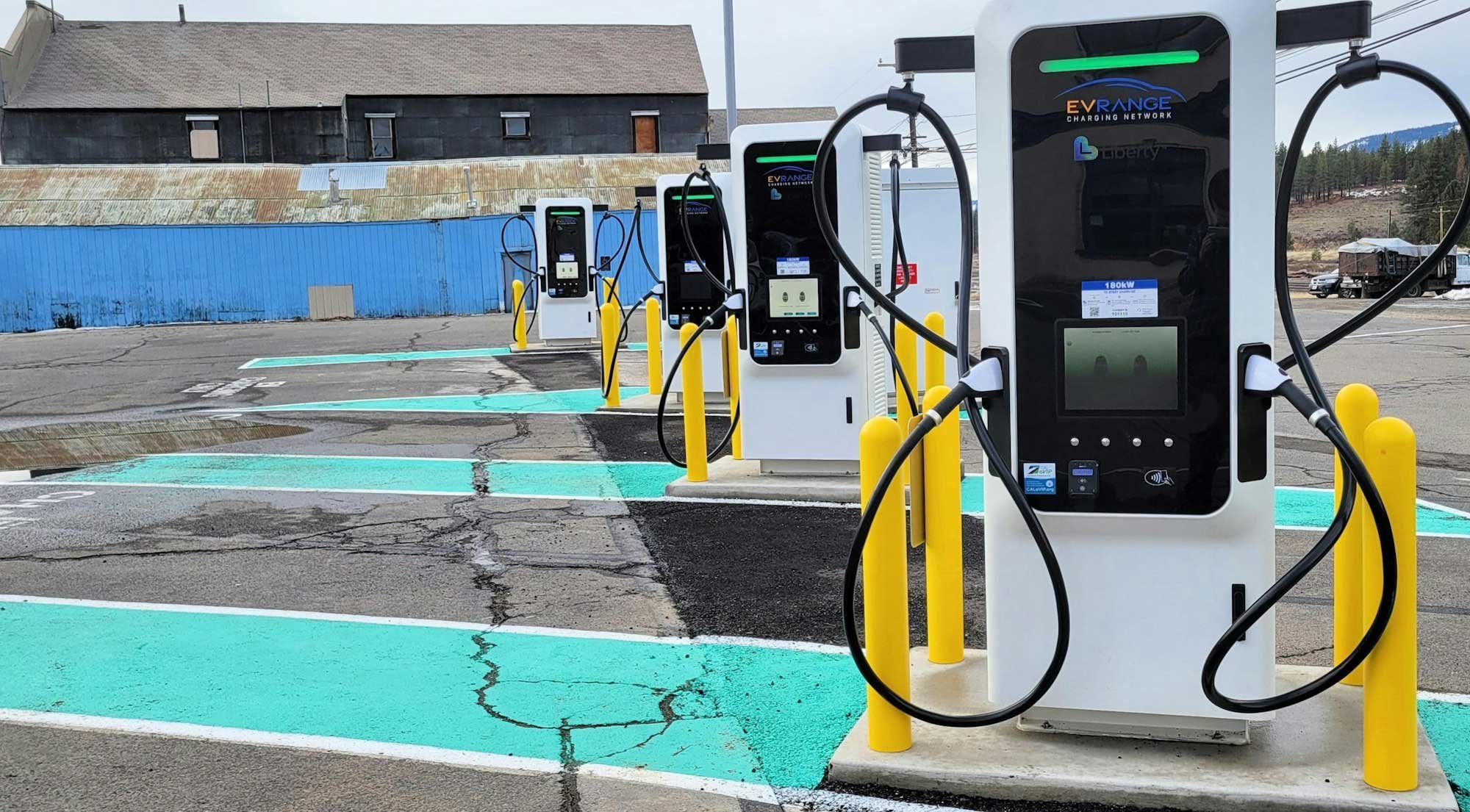
EV Charging Infrastructure Acquisition: Income-Producing DC Fast Charging Assets in California
A Curated Portfolio of Income-Generating EV Infrastructure
EV Range, a vertically integrated software, network, and development provider, is offering an exclusive portfolio of high-power EV charging assets for institutional acquisition. This curated collection includes operational, revenue-generating hubs and shovel-ready development sites across strategic, high-growth corridors in California.
This is a focused opportunity to acquire tangible, income-producing infrastructure assets. We provide direct ownership of physical EV charging sites, engineered to generate predictable revenue and lasting value.
Why This Portfolio Matters
The global transition to electric vehicles is accelerating at a remarkable pace. In early 2025, electrified vehicles—including battery electric, plug-in hybrid, and hybrid models—accounted for 43% of global auto sales, up sharply from 9% in 2019. In the United States, battery electric vehicles make up nearly 10% of new car sales. This rapid adoption is driving a fast expansion of charging infrastructure, with the U.S. fast charging market expected to grow by almost 20% this year and more than 16,000 new fast charging ports being deployed in 2025. At this rate, national capacity could quadruple within a few years.
For infrastructure investors, these trends highlight a key reality: access to reliable charging is now central to the EV transition and essential for mass adoption. Each site in this portfolio is selected for strategic proximity to major travel corridors, high-growth regions, fleet depots, and underserved urban centers. These locations are positioned to meet real demand as electric mobility enters its next phase. The opportunity here is to invest in assets that will remain critical as both energy and transportation landscapes continue to evolve
Key Portfolio Highlights
Geographic Diversity: Includes sites along major corridors, in tourism-heavy regions, and near municipal fleets and commercial centers.
High-Power Design: Most sites are built for 150kW–350kW DC fast charging, with some offering Level 2 chargers for overnight dwell time or fleet use.
Development Progress: Every location is in active development, with many having completed engineering, load studies, or utility coordination.
Software-Enabled: Each site will operate on the EV Range platform—offering usage-based billing, dynamic pricing, uptime monitoring, and performance reporting.
Multi-Stream Revenue Model: Beyond public charging, sites can generate income from fleet partnerships, idle time fees, and potential co-located services.
What Comes Next
We’ve assembled financial summaries, site data, and projected returns to support investor due diligence. For parties interested in acquisition, we offer direct access to our development team, site design partners, and platform engineers.
If you're ready to own and operate the infrastructure that powers the EV transition, this is your entry point.
THE §30C ALTERNATIVE FUEL REFUELING PROPERTY CREDIT: MAXIMIZING INFRASTRUCTURE ROI
The Alternative Fuel Vehicle Refueling Property Credit—commonly referred to as the §30C Tax Credit—is a pivotal federal incentive designed to reduce capital expenditures and enhance the profitability of qualified EV charging infrastructure. This program enables businesses and investors to recover a substantial portion of installation costs, positioning EV charging as a compelling and scalable investment.
With demand for reliable, high-powered EV charging continuing to surge, now is an opportune time to capitalize on high-ROI infrastructure projects. By leveraging the §30C tax credit alongside thoughtful site development, you can accelerate the growth and profitability of your EV charging network.
How the 30C Tax Credit Works (For Businesses and Commercial Assets)
30% Credit on Qualified EV Charging Property:
Businesses are eligible to claim a credit equal to 30% of the cost of qualified EV charging equipment and installation labor when prevailing wage and apprenticeship (PWA) requirements are met. If PWA requirements are not met, the base credit is 6%.Maximum Credit Per Single Item:
The credit is capped at $100,000 per single item of property. A single item of property is defined as each individual charging port, fuel dispenser, or associated energy storage unit—making large-scale installations, such as fleet depots and charging hubs, potentially more attractive.Critical Location Requirement:
Property must be placed in service in an eligible census tract as defined by the IRS, including either a low-income community or a non-urban area.Expires June 30, 2026:
Due to current federal legislation, the §30C credit is available for property placed in service through June 30, 2026, offering a near-term window for funding multi-site expansion plans.Stackable State & Local Incentives:
The federal §30C credit can often be combined with additional state and local incentives for EV infrastructure. EV Range’s team has the expertise to navigate these opportunities and help you maximize returns while accelerating asset deployment.
Scalable, High-Return EV Charging Opportunities
In-House Turnkey Project Delivery
EV Range handles site acquisition, engineering, development, and deployment—all in-house. Our turnkey approach, combined with our software platform and field services, streamlines the path to profitable site ownership.
Ready-to-Build EV Charging Hubs
We offer a portfolio of fully permitted, shovel-ready sites for rapid deployment. Invest with confidence and leverage EV Range’s platform and support services for seamless operation.
Proven Financial Performance
Backed by years of operational data, we provide accurate ROI modeling for investors. Contact us to review financial projections or invest in a high-performing project already in development.










